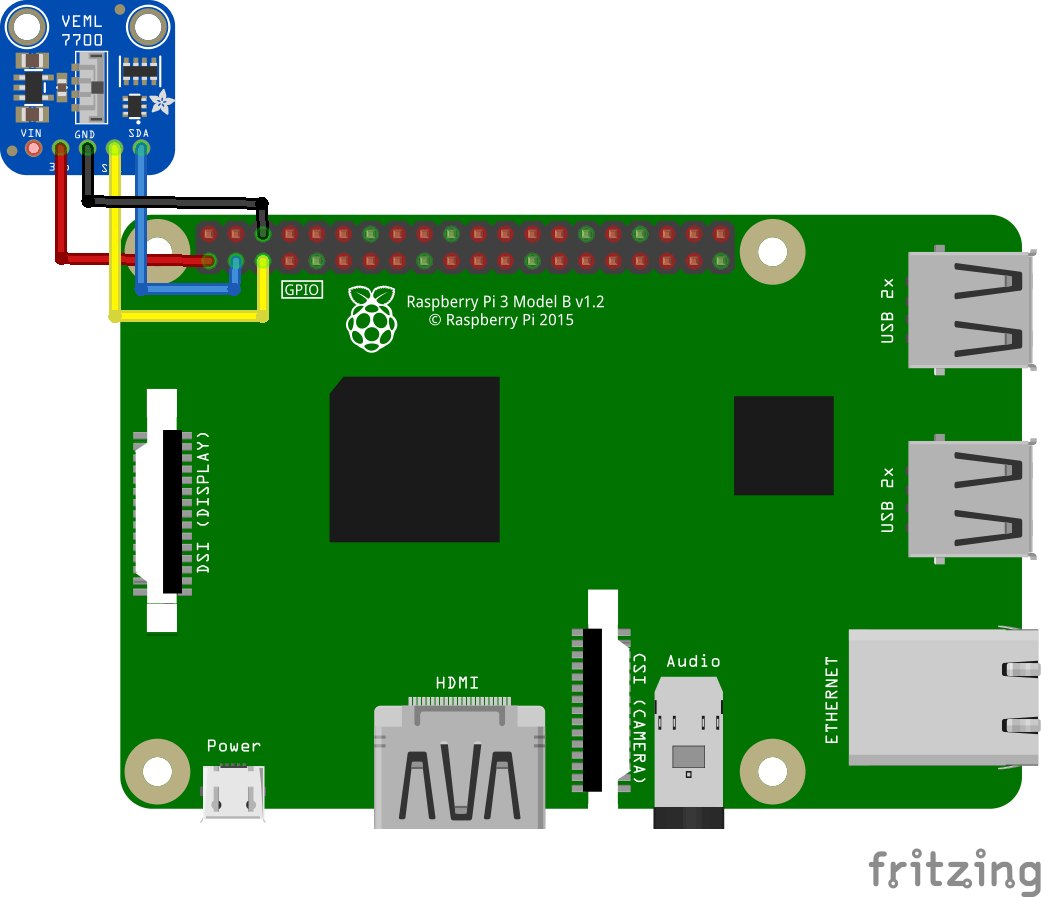In this article we look at a ambient light digital 16-bit resolution sensor – this time its the VEML7700 and we will connect it a raspberry Pi and the example is in python
This is the sensor that I will be using
Lets look at some information regarding the sensor
Sensor Information
VEML7700 is a high accuracy ambient light digital 16-bit resolution sensor. It includes a high sensitive photo diode, a low noise amplifier, a 16-bit A/D converter and supports an easy to use I2C bus communication interface.
The ambient light result is as digital value available
FEATURES
Integrated modules: ambient light sensor (ALS)
Supply voltage range VDD: 2.5 V to 3.6 V
Communication via I2C interface
Floor life: 72 h, MSL 4, according to J-STD-020
Low shut down current consumption: typ. 0.5 μA
AMBIENT LIGHT FUNCTION
Filtron TM technology adaption: close to real human eye response
O-Trim TM technology adoption: ALS output tolerance≤ 10 %
16-bit dynamic range for ambient light detection from 0 lx to about 120 klx with resolution down to 0.0036 lx/ct,supports low transmittance (dark) lens design
100 Hz and 120 Hz flicker noise rejection
Excellent temperature compensation
High dynamic detection resolution
Software shutdown mode control
Parts Required
Here are the parts required to build this, there are various links you can choose from – I personally buy from Aliexpress as it is usually cheaper but you will probably have to wait 3+ weeks
| Name | Link |
| Raspberry Pi 4 | Aliexpress |
| VEML7700 Lux Sensor | Amazon link |
| Dupont Connecting wire | Free shipping Dupont line 120pcs 20cm male to male + male to female and female to female jumper wire |
Schematic/Connection
Another I2C sensor so easy to connect up to any Raspberry Pi
Code Example
This uses a library from Adafruit which you can install like this from the terminal
sudo pip3 install adafruit-circuitpython-veml7700
I then opened the Mu editor and entered the following code example, which is the same as the default example
[codesyntax lang=”python”]
import time
import board
import busio
import adafruit_veml7700
i2c = busio.I2C(board.SCL, board.SDA)
veml7700 = adafruit_veml7700.VEML7700(i2c)
while True:
print("Ambient light:", veml7700.light)
time.sleep(0.1)
[/codesyntax]
Output
Run this example and you should see the following , cover the sensor and alter the light on it
Ambient light: 3423
Ambient light: 991
Ambient light: 84
Ambient light: 92
Ambient light: 102
Ambient light: 104
Ambient light: 2573
Ambient light: 3120
Ambient light: 3148
Links
https://www.vishay.com/docs/84286/veml7700.pdf




